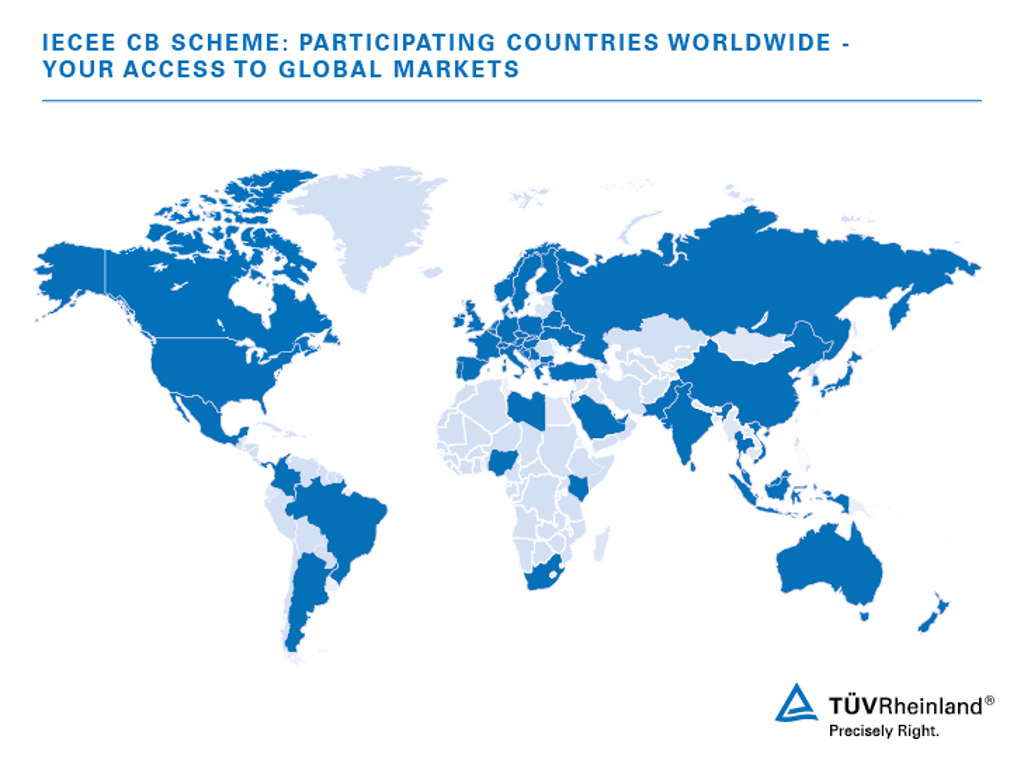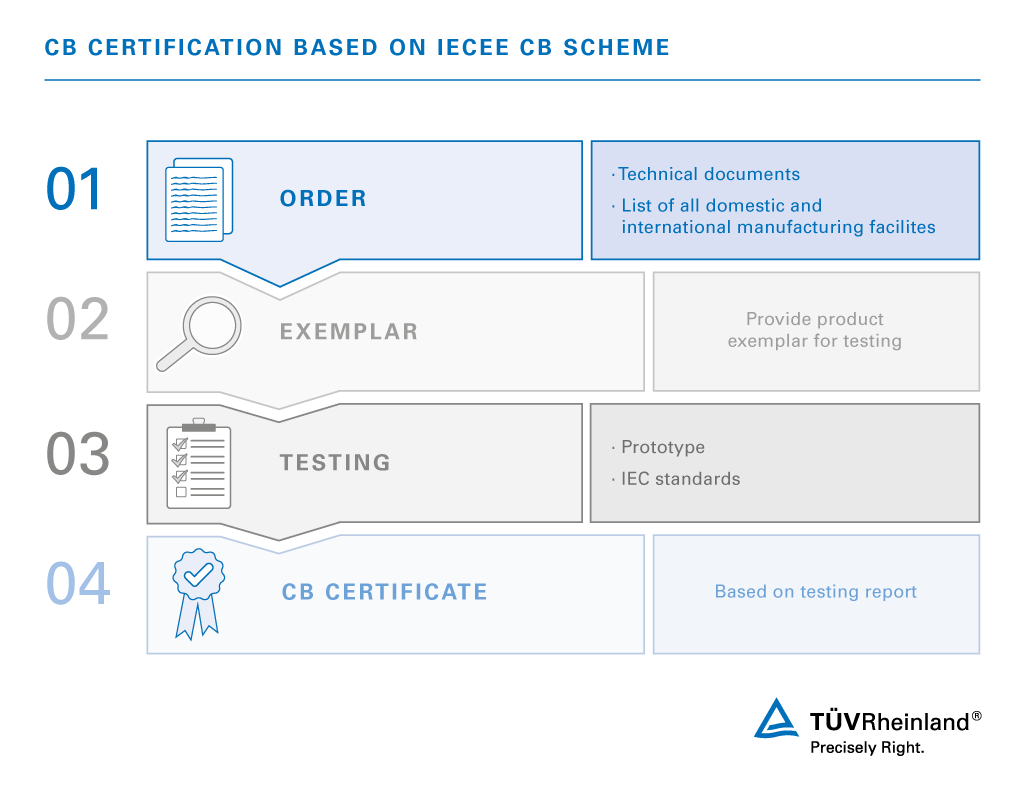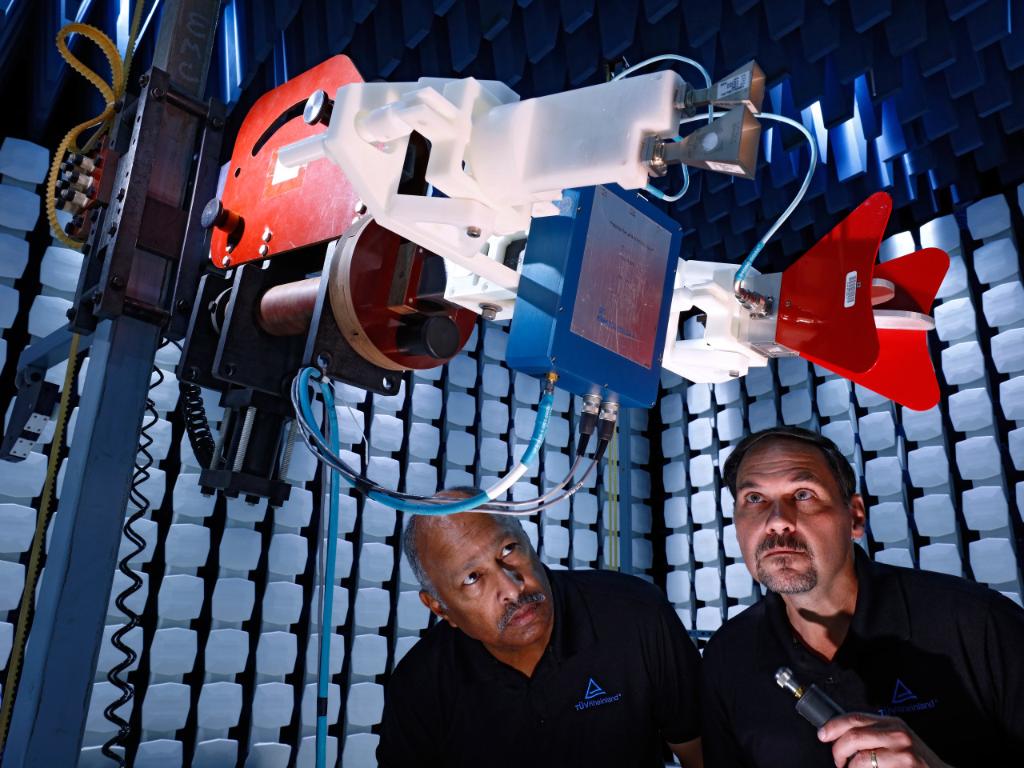CB Certificate – CB Scheme IECEE
_core_2_2_1.jpg)
Enter International Markets with the CB Certificate!
The CB scheme is an international system for the mutual recognition of test results and certificates in the field of safety of electrical and electronic components, equipment and products based on a multilateral agreement between participating countries and certification organizations.
More than 50 countries currently participate in the CB scheme, including Austria, Belgium, Denmark, Germany, Finland, France, Greece, Hungary, Saudi Arabia, Kenya, South Africa, India, China, South Korea, Singapore, Thailand, Japan, Canada, USA, Mexico and Argentina. The major advantage of the CB scheme is that it enables access to the markets of all these member states with just one testing and certification procedure.
The IECEE CB scheme makes it easier for manufacturers to place their electrotechnical products on the international market. With a CB certificate and the CB report, manufacturers can apply for the respective test marks of different target markets more quickly. This is also a result of the efficient and lean processes with which TÜV Rheinland contributes to achieving the CB certificate.
Our experts test your products in accordance with the IECEE CB scheme and also perform the additional tests and certifications required for access to international markets.

Contact us to benefit from the advantages of the CB procedure.
CB Certificate for Shorter Test Times and Faster Market Access
With a CB certificate from TÜV Rheinland, you can export your electrotechnical products to countries all over the world more quickly. For additional testing and certification of the various national test marks in your target markets, take advantage of the opportunity to receive everything from a single source. Save both time and money, as you no longer need expensive multiple tests.
Do you have any questions about the CB procedure or the requirements you need to fulfill in order to launch your electrotechnical products worldwide? We are happy to provide you with information on the CB program and various country-specific regulatory requirements as part of our Market Access Services.
CB Scheme IECEE – Getting Your CB Certificate in Just Four Steps

- When you submit your application for a CB certificate, you or your representative must enclose all necessary technical documents and list all national and international production sites for your electrotechnical product.
- You provide a sample of your electrotechnical product for testing.
- We will prepare a CB report after examining the sample and determining its conformity with the applicable IEC standards.
- On the basis of this CB report, we issue a CB certificate, which you receive with the CB report.
Based on your CB certificate, we will be happy to provide you with further country-specific certifications as part of our Market Access Service. All you need to do is send us a list of all the countries in which you want to sell your electrotechnical product in the future.
Direct Access to International Markets with Your Experienced Partner

We are your experienced partner for professional services concerning the IECEE CB procedure for electrotechnical products.
Our four national certification bodies in Germany, Hungary, the USA and Japan as well as our various international locations around the world will help you to apply for the relevant national test marks and approvals.
We have local contacts who are familiar with the regulatory requirements of your target markets. This enables us to offer you a comprehensive service as part of our Market Access Services.
Our experts will be happy to inform you about the right approval procedure for your product. Contact us for an individual offer!
CB Scheme IECEE for Medical Electrical Devices
Medical electrical products from Germany are in high demand abroad. In addition to the EU, manufacturers are particularly interested in the USA and Asia as sales markets, where demand and growth potential are high. However, the regulatory requirements of international markets are very complex. Manufacturers should consider all relevant tests right from the development phase of a product to ensure that market entry is successful without any additional time or costs. One challenge: a medical device often consists of a large number of components which all have to meet the complex approval requirements.
A CB certificate makes it easier to export medical electrical devices to international markets. TÜV Rheinland supports you as a competent partner throughout the entire CB procedure. We keep track of all access requirements for international markets and the related regulations for you. As part of the CB procedure for medical electrical devices, we offer you, for example
- Testing in accordance with IEC 60601 and other standards
- Testing of national deviations for the respective market
- Issue of a CB certificate based on the CB test report
Our experience and expertise enable us to efficiently design the CB procedure. This allows you to quickly position your medical device on international markets such as Asia or the USA.
Frequently Asked Questions
Learn More about the IECEE CB Scheme
| Sample certificate IECEE CB procedure | 82 KB | Download |
Related Topics
Contact




_core_4_3.jpg)
/tuv-rheinland-medical-products-mdd_core_4_3.jpg)

